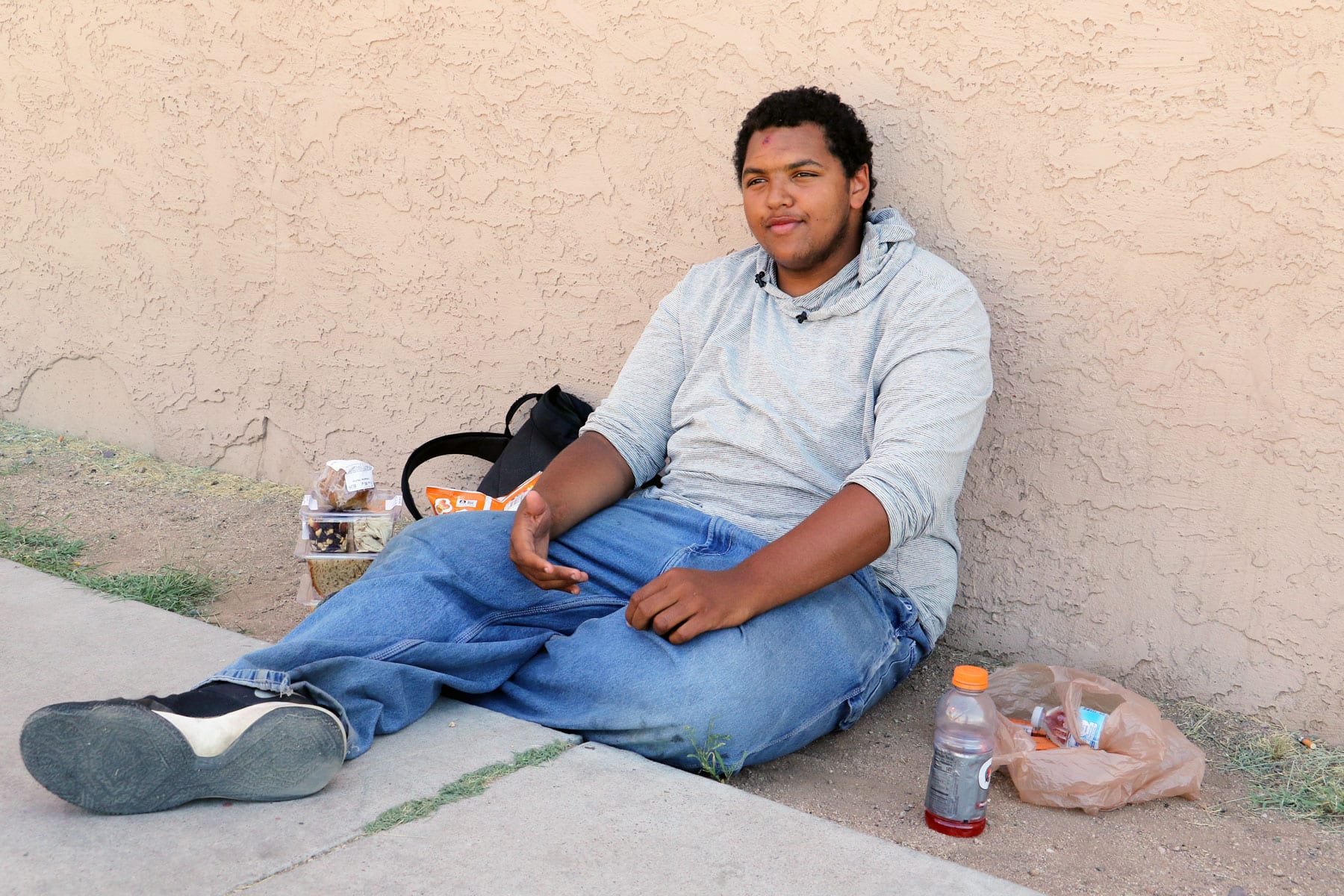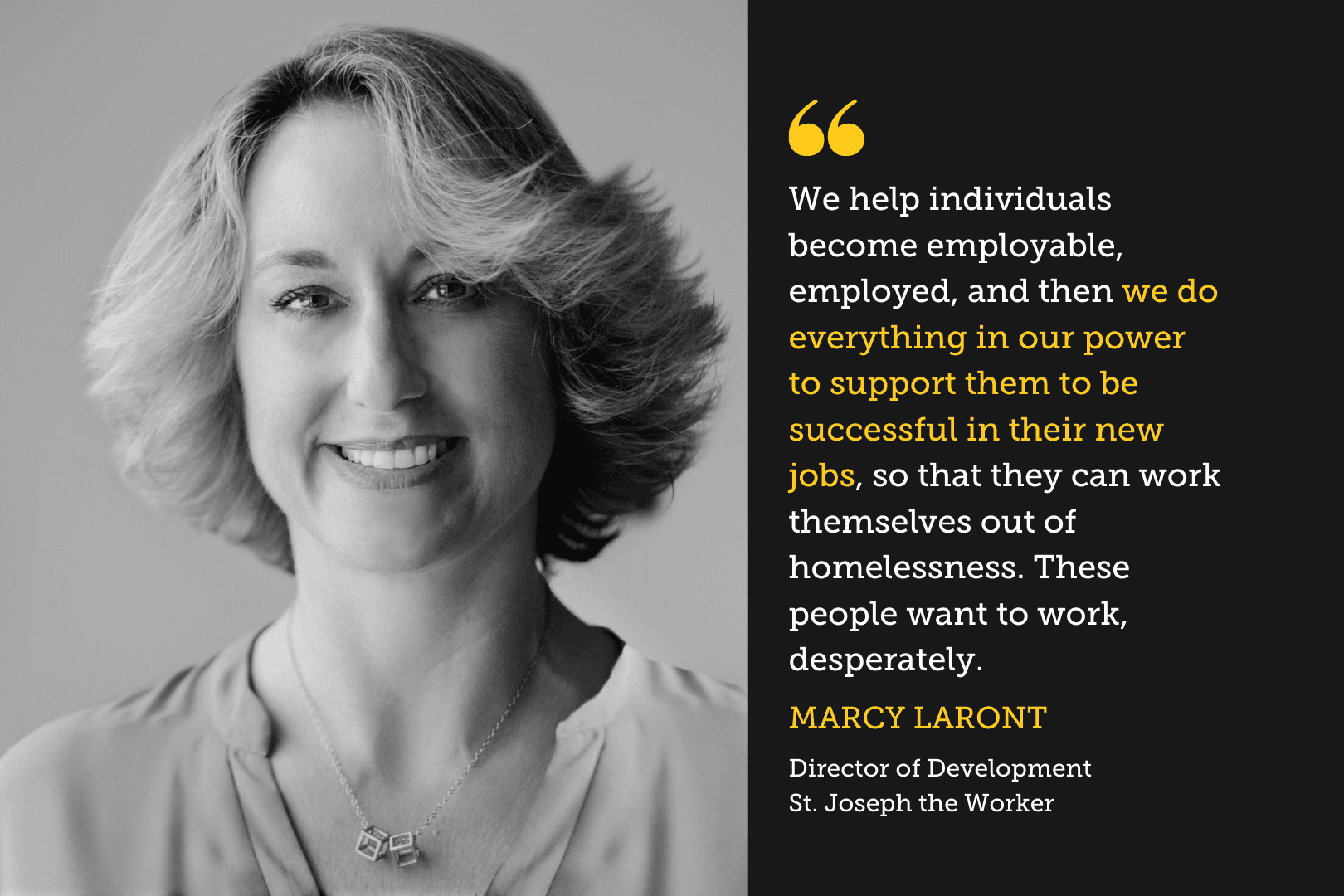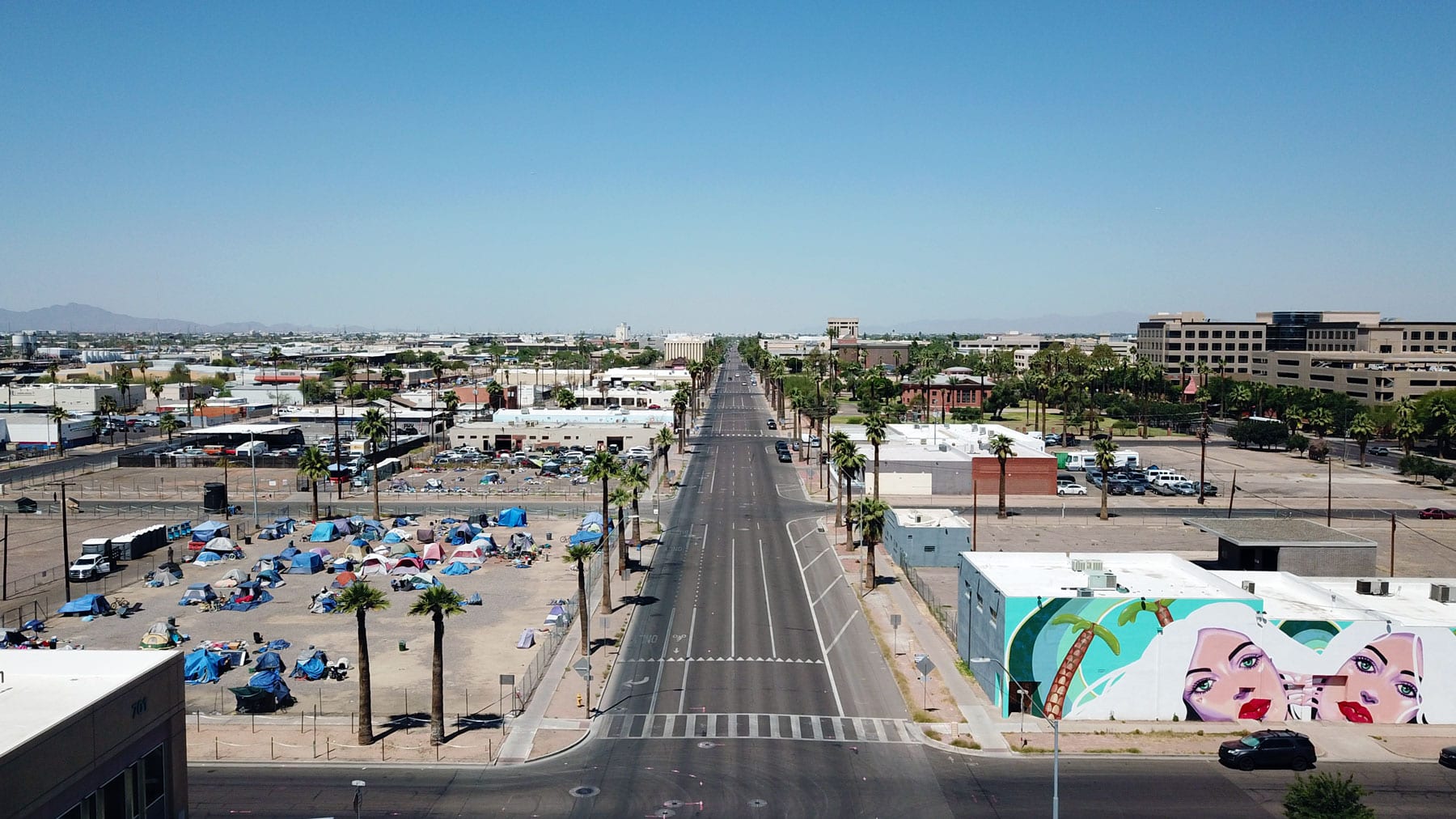About the author: Marcy LaRont is the director of development for St. Joseph the Worker (SJW), an employment agency, job development and support service, providing resources for job seekers who are extremely economically disadvantaged or experiencing homelessness. Other SJW volunteers and team members contributed to this article.

Thomas Marx sits on the sidewalk near the Human Services Campus just west of Downtown Phoenix. He said he’s taking advantage of the services St. Joseph the Worker provides, and is currently looking for a warehouse-type job. He lost his home two months ago when the family members he was staying with moved away. He’s 19 years old. (Photo: Fara Illich | May 19, 2021)
When I was growing up in San Jose, California, I literally never went downtown. I thought it was dirty and dangerous, and there were too many homeless people. “Stay away” is what we were told by well-meaning parents, and I made a direct correlation between homelessness and dangerous people. Fast forward decades later, and I find myself working within the area of homelessness. Today, what I know for sure is that neither my parents nor myself had any real idea about the issue, or who it impacts.
For this reason, I am grateful for DTPHX’s Community Voices series on busting myths around homelessness. My organization is St. Joseph the Worker (SJW), and for 33 years, SJW has removed barriers to employment for the homeless and extremely disadvantaged, and connected them to employment opportunities. We help individuals become employable, employed, and then we do everything in our power to support them to be successful in their new jobs, so that they can work themselves out of homelessness. These people want to work, desperately.
The truth is, roughly 75% of homeless individuals are in what’s called “transitional homelessness” due to bad circumstances – losing a job, eviction, divorce, etc. They will transition out of homelessness within a year, with the proper help and support, which is time sensitive and critical. SJW is part of the solution to end homelessness for the group that is able and wanting to work. We want to get them off the streets and into jobs (and shelter) as quickly as possible, so that they are more likely to be successful in the long-term.

SJW Executive Director Brent Downs, who was homeless once himself says, “whether you are on the streets for a day, a week, or a year, living on the streets is traumatic, and the trauma never goes away. The longer you are out there, the more likely you will never leave. We need to get the people that we can — those that can and want to work — back into jobs that give them a paycheck and some of the dignity they lost in being homeless, and we need to do this as quickly as possible.”
Many people who are experiencing homelessness have the desire to work, but there are a multitude of obstacles that stand in their way. Not all people who are experiencing homelessness are unemployed. Many are working, but don’t have a stable place to stay each night.
There are barriers that people who experience homelessness face when it comes to employment that are so miniscule to people who are housed, that we don’t even think about them (i.e. having a phone so that you can receive a call after submitting an application; having access to a computer so you can complete an online application; having access to a shower and clean clothes so that you look presentable; having enough money to pay for your bus fare or the gas needed so that you can get to an interview or new job; coming out of incarceration, convicted for a terrible mistake you made when you were young, paid your dues, then not able to find an employer who hires people with a criminal background).
The more understanding and educated that housed individuals are about these barriers, the easier it will be to address them in the future.

The parking lots just west of downtown where hundreds of people without housing lived for the past year will close to camping this summer. The Human Services Campus is actively working to find each of those residents permanent, supportive housing. (Photo: Fara Illich | May 19 , 2021)
Many of our clients are homeless for the first time due to the death of a spouse, domestic violence, or aging out of foster care. Many of these clients are job-ready, but are overwhelmed with their current situation of staying in a shelter. Being homeless is overwhelming. Not knowing where you are going to sleep at night, what resources are available, who will hire you, what mailing address to use, where to get clean clothes or a shower to use, how to get places without money for transportation – these are all major concerns.
Even if all of these things are taken care of, some SJW clients are also dealing with grief, anxiety, trauma and possible health issues. Not only that, but if hired into a job, being a new staff member comes with lots of questions from co-workers. That stress alone is a lot to deal with. Knowing that you have no “home” is a huge deal, especially if your co-worker’s first question is, “where do you live?”
If you were to meet some of our clients, and they did not disclose that they are homeless, living in a shelter, or camping, you would never know. But they are stereotyped as lazy, not dependable and worthless due to their homelessness. When given a chance, these individuals are great employees. Through employment, homelessness can end for many people every day.
About this series: Led by Phoenix Community Alliance — Community Voices is a series about the impact of homelessness in Downtown Phoenix, and commonly-held myths, stereotypes and misperceptions of the issue.




